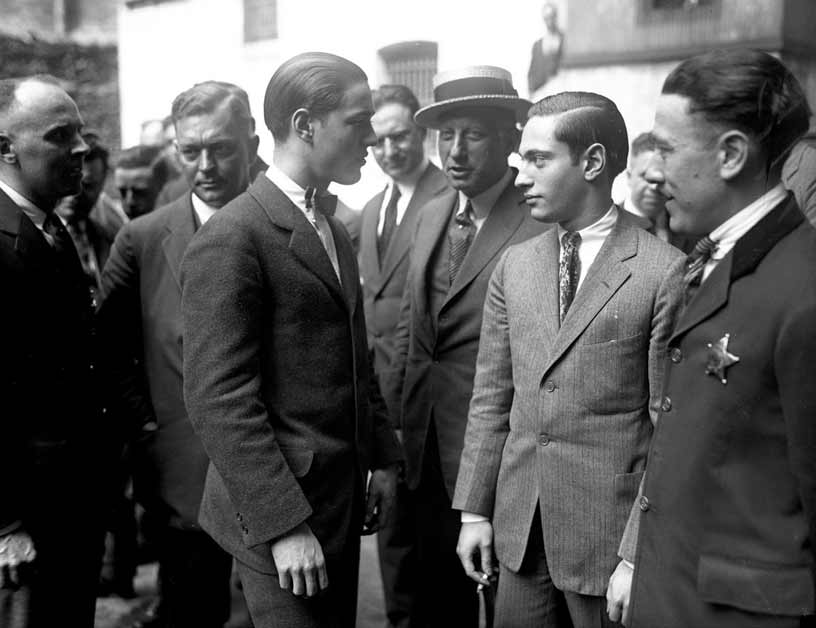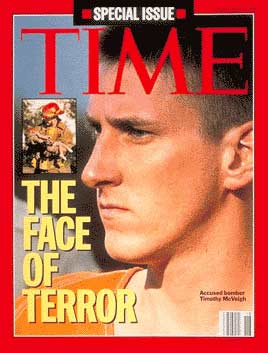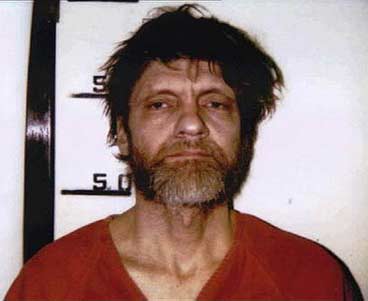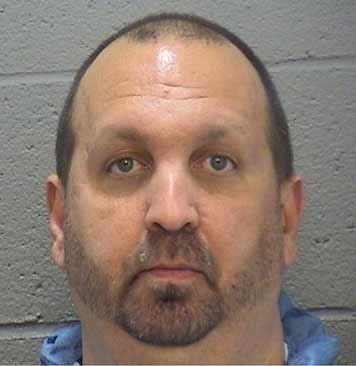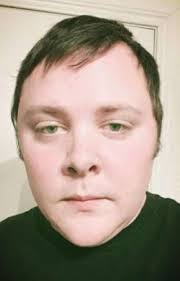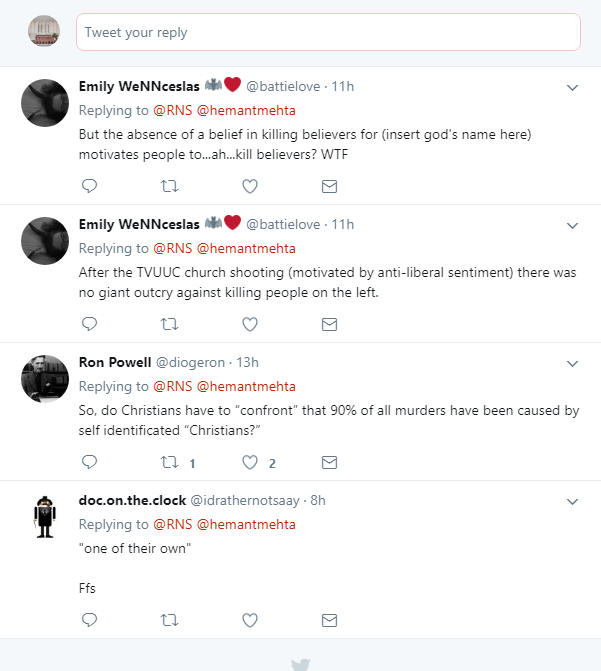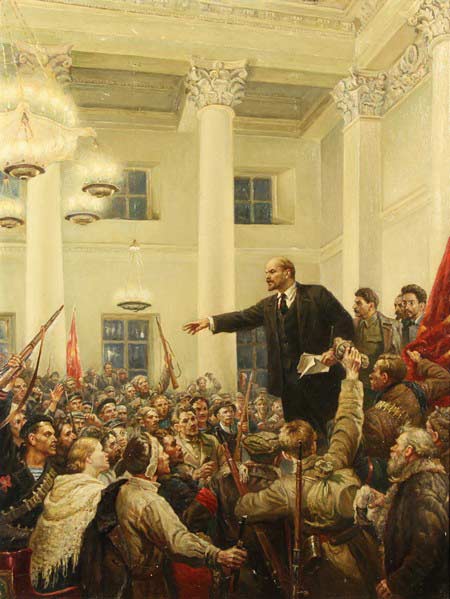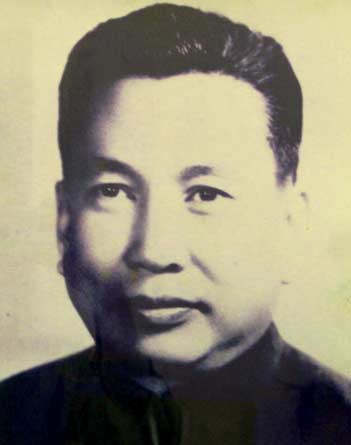|
True to their French Revolutionary heritage, the Khmer Rouge banned all religions; they were equal-opportunity persecutors, murdering
Buddhist monks alongside Vietnamese Christians. The sanguinary Democratic Kampuchea National
Anthem sets the tone:
"Bright red blood covers the towns and plains
of Kampuchea, our Motherland,
Sublime blood of the workers and peasants,
Sublime blood of the revolutionary men and women fighters!
The blood changes into unrelenting hatred
And resolute struggle. . ."
(quoted
p. 248, 'Pol Pot, Anatomy of a Nightmare,' Philip Short).
The most distinctive act of this new regime, the emptying out of the
cities, is not canonical Marxism. It was a pragmatic measure
already in use before the fall of Phnom Penh. The Khmer Rouge had found
that the towns they 'liberated' kept falling back into their
bad old habits; just as soon as they stamped out the black market, it
sprang back up again: "But the private sector remained active: 'Kratie
township showed the same signs as in the old society. Honda motorcycles
were speeding up and down the streets like before, while our ragged
guerrillas walked in the dust. This showed that they were still the
masters.'" (The Pol Pot Regime, Ben Kiernan, p. 62). In the cities, people found a way to live their
lives in the interstices of the socialist system, not under complete
party control as were the peasants in the village communes. And above all they
wanted control; this enlightened, atheist system was one of universal
slavery:
"What Pol and his colleagues approved that spring was a
slave state, the first in modern times. . . Pol enslaved the Cambodian
people literally, by incarcerating them within a social and
political structure, a 'prison without walls,' as refugees would
later call it, where they were required to execute without payment
whatever work was assigned to them for as long as the cadres ordered
it, failing which they risked punishment ranging from the
withholding of rations to death. Food and clothing were, in theory,
provided by the state. But there were no wages." (p. 291, Pol Pot,
The Anatomy of a Nightmare, Philip Short.)
So they began the policy of forced evacuation of 'liberated'
cities and towns; what they did to Phnom Penh was already established policy. They
taught their troops that cities were evil: "'The city is bad because
there is money in the city,' a Khmer Rouge cadre told Ponchaud.
'People can be reformed, but not cities.'" (p. 279, Pol Pot, The
Anatomy of a Nightmare, Philip Short). Twenty thousand people
perished in the evacuation of Phnom Penh, a forced march into the
country-side that set even the sick and maimed in motion:
"It was a stupefying sight, a human flood pouring out of
the city, some people pushing their cars, others with overladen
motorcycles or bicycles overflowing with bundles, and others behind
little home-made carts. Most were on foot. . . ." (Eye-witness
account, quoted p. 272, Pol Pot, Anatomy of a Nightmare, by Philip
Short).
The ground where these millions of people travelled on their march to
the jungle was littered with discarded refrigerators, sewing machines, clothing, and dead
bodies. There, in the Year Zero, they began to make the world anew, with no
infrastructure, no schools, clinics or food stores awaiting them. Mao Zedong had already defined the ideology of a peasant
revolution, where the peasants, not the (non-existent) urban
proletariat, were the revolutionary class. Like other atheist
world-makers, Mao wanted a blank slate, a clean piece of paper on
which to paint his master-piece: "'Poor people want change, want
revolution. A clean sheet of paper has no blotches, and so the
purest and most beautiful words can be written on it.'"
(Mao Zedong,
quoted p. 148, Pol Pot, Anatomy of a Nightmare, Philip Short.)
Unfortunately people as they were let these atheist dreamers down,
and so they had to kill a lot of them. In addition to the starvation which
always accompanies a Great Leap Forward in the country-side,
they simply did away with a lot of these people:
"'Those we surprised at night in the act of saying bad
things, we educated, which means that they worked harder than the
others. If they repeated the offence, they were killed with a cudgel
or a pickaxe. Then they were buried and that was that.'"
(Young village militiaman, quoted p. 322, Pol Pot, Anatomy of a Nightmare,
by Philip Short).
The Khmer Rouge gave the world the sparkling slogan, "'To spare you
is no profit, to destroy you is no loss.'" (John Withington, Disaster!,
p. 239). Without irony, the leadership urged the survivors to emulate the condition of oxen:
"'You see the ox, comrades. Admire him! He eats where we [tell]
him to eat. . .When we tell him to pull the plow, he pulls it.'"
(p. 309, Pol Pot, Anatomy of a Nightmare, by Philip Short). Along with cities, they dispensed with money:
"Mok favored a barter system. . .He also said if there
were no money, it would remove the problem of corruption and curtail
the activities of enemy agents. 'When a wound is not yet healed,' he
said, 'you shouldn't push a stick into it. You must leave it alone,
otherwise it will get worse.'" (p. 307, Pol Pot, Anatomy of at
Nightmare, Philip Short).
"'Zero for him, zero for you — that is communism,'
Khieu Sampan had said." (p. 317, Pol Pot, Anatomy of a Nightmare,
Philip Short).
Under their new constitution, religion was abolished, so the Buddhist monasteries
were emptied out. Strangely enough, in spite of their hostility
to Buddhism and other indigenous religions including Islam, the Khmer Rouge had internalized the Buddhist
directive of eliminating the human personality: "The ultimate goal
for a Khmer Rouge was 'to have no personality at all.'"
(p. 318, Pol Pot, Anatomy of a Nightmare, by Philip Short). The Buddhist ideal of 'no
mind' seeks to silence the internal dialogue which goes along with
the human condition. Foreign visitors to Cambodia during these years
noticed the robotic, emotionless affect of the survivors, though
some of this may have been the lassitude accompanying
near-starvation.
The surviving inhabitants of Cambodia spent the
Khmer Rouge years engaging in self-criticism, writing
auto-biographies, and seeking to eliminate such vestiges of the old
way of thinking as saying 'I:' "Language was stripped bare of
incorrect allusions. Instead of 'I,' people had to say 'we.'"
(p. 324, Pol Pot, Anatomy of a Nightmare, by Philip Short). Readers of Bolshevik
refugee Ayn Rand will recall that she predicted this, as expressed on
the title page of 'Anthem:'
"They existed only to serve the State. . .From cradle to
grave, the crowd was one—the great We.
"In all that was
left of humanity there was only one man who dared to think, seek
and love. He, Equality 7-2521, came close to losing his life
because his knowledge was regarded as treacherous blasphemy. .
.he had rediscovered the lost and holy word—I."
(Ayn Rand, Anthem, Title Page.)
"In some parts of the country, it was forbidden even to laugh or sing."
(p. 328, Pol Pot, Anatomy of a Nightmare, by Philip Short).
Starvation raced with political repression to see which could
kill more Cambodians. In the end the two joined hands, forming a
death vortex. Rural socialism produced a famine, as it always does. Prohibition of foraging as leading to
'individualism' and introduction of mandatory communal dining worsened the food
shortage. Pol Pot was not willing to tolerate dissent; non-conformists were enemies to be liquidated:
"In a broadcast on Radio Phnom Penh, Pol surmised that
'between 1 and 2 per cent of the population' was irredeemably
hostile and 'must be dealt with as we would any enemy'. . ."
(p. 368, Pol Pot, The Anatomy of a Nightmare, Philip Short.)
Testimony of anti-government conspiracy was obtained by the C.I.A.'s
own favored mode of torture, simulated drowning. Torture worked its
magic and yielded signed confessions. Further evidence that enemies
roamed amongst the people of Cambodia was the very fact that they were
starving: "'Hidden enemies seek to deprive the people of food,' he [Pol]
told the Central Committee in December 1976." (p. 369, Pol Pot, the
Anatomy of a Nightmare, Philip Short). Enemies of the state were
liquidated; that the people were starving showed these enemies' power
and activity, and so murder raced with famine to see which could claim
more lives. So intense was the Khmer Rouges' passion for secrecy and
their aversion to transparency that, even as thousands were losing their lives to this atheist
regime, the rank-and-file Cambodians did not know they were being
governed by a man named Pol Pot, nor that Pol Pot was Saloth Sar, nor
that the country was being governed by the Cambodian Communist Party;
these mysteries were revealed only gradually.
Like many other atheist regimes, they had a special hatred for
the religious. Though Cambodia was a French colony as was Vietnam,
French missionaries were less successful in converting the
Cambodians to Catholicism. More than 80 per cent of the population
in 1975, the year Zero, was Buddhist. A
minority group, the Cham, practiced Islam, and some small tribes in the
mountains practiced indigenous folk religions. The Pol Pot years were dangerous ones for
Buddhist monks and the religious minorities. After Phnom Penh fell,
the Buddhist monks were ordered out of their monasteries and into
the fields to grow rice. These plans were laid out in a May of 1975:
"Ret said that 'eleven points' were discussed, but his
colleagues, interviewed in 1980, could recall his mentioning only
the leadership's orders to 'kill Lon Nol soldiers, kill the monks,
[and] expel the Vietnamese population' and its opposition to 'money,
schools and hospitals.'" (The Pol Pot Regime, Ben Kiernan, p. 56).
'Kill' is a harsh word, and perhaps it was not used:
"Heng Samrin, then studying military affairs under Son
Sen, was also at the meeting. He recalls the use of yet another
term: 'They did not say "kill," they said "scatter the people of the
old government." Scatter them away, don't allow them to remain in
the framework. [...]
"On the other hand, Samrin adds: 'Monks, they said, were
to be disbanded, put aside as a "special class," the most important
to fight. They had to be wiped out. . .I heard Pol Pot say this
myself. . .He said no monks were to be allowed, no festivals were to
be allowed any more, meaning "wipe out religion."'"
(The Pol Pot Regime, Ben Kiernan, p. 57).
By September of 1975 the government felt they had nearly met their goal:
"Buddhist monks 'have disappeared from 90 to 95
percent,' the rest being 'nothing to worry about.'" (The Pol Pot
Regime, Ben Kiernan, p. 100).
Many of these Buddhist monks had been killed, though guilty of no crime,
and the survivors had been terrified into silence. Monks were on the hit
list: "'In 1977, they started killing capitalists, students, monks,
and even Chinese and Vietnamese, even if they could speak Cambodian.
These classes were killed by being beaten to death with poles.'"
(The Pol Pot Regime, Ben Kiernan, p. 291).
Adherents of minority religions, such as the Muslim Cham people, likewise suffered persecution:
"As the White Scarves waited in the neighboring province
for a response from Samphan, D[emocratic] K[ampuchea] officials
banned Islam, closed the local mosque, and dispersed the Cham
population as far as the northwest provinces. Some Muslims were
forced to eat pork, on pain of death. . .The officials
began killing any who infringed these regulations. One local peasant
recalls: 'Some Cham villages completed disappeared; only two or
three people remained.'" (The Pol Pot Regime, Ben Kiernan, p. 2.)
The Khmer Rouge systematically murdered the Islamic leadership:
"They gave these details for the most prominent Cham
victims: Imam Haji Res Los, Cambodia's Grand Mufti, was thrown into
boiling water and then struck on the head with an iron bar, at
Konhom, Peam Chisor, Prey Veng, on 8 October 1975; Haji Suleiman
Shoukri, the 1st Mufti, was beaten to death and thrown into a ditch,
at Kahe, Prek Angchanh, Kandal, in August 1975; Haji Mat Sles
Suleiman, the 2nd Mufti, was tortured and disembowelled in
Battambang, on 10 August 1975; Haji Mat Ly Harum, Chairman of
Cambodia's Islamic Association, died of starvation in prison at
Anlong Sen, Kandal, on 25 September 1975. . ." (The Pol Pot Regime,
Ben Kiernan, p. 271.)
This leadership hunt went on down to the merest 'hajji,' any person
who had made the pilgrimage to Mecca. The Khmer Rouge confiscated the
Koran: "In June or July 1975, Ly asserts, the Krauchhmar authorities
attempted to collect all copies of the Koran there, and obliged Cham
girls to cut their hair." (The Pol Pot Regime, Ben Kiernan, p. 263.)
Once communal dining was introduced, there was no way for Muslims to
conceal their disinclination for eating pork, which could be lethal: "In
her group of five Cham families in Kantuot village, there was one death
from illness, and in other villages, at least four Chams were killed for
refusing to eat pork. 'They were accused of being holy men in the old
society,' she says." (The Pol Pot Regime, Ben Kiernan, p. 283.) This
population group, whose ancestors came to Cambodia from India, was
dispersed, their villages broken up, and suffered heavy casualties:
"Imam Him Mathot told him that he had been evacuated
from Phnom Penh to Kompong Speu with five hundred Cham families,
totalling about three thousand people. Fewer than seven hundred
survived in 1979, according to the Imam: 'Half the deaths were due
to starvation, and the other half by execution.'" (The Pol Pot
Regime, Ben Kiernan, p. 285.)
With the Khmer Rouge, the 'or else' was often immediate execution: 'What if
I don't want to leave Phnom Penh?' 'Bang.' So it was with those not
happy to see their religion banned. When people nowadays talk like Pol
Pot, Sam Harris for example, there is no empirical historical reason to
think they don't mean just exactly what they say. According to the
common law adage, "the Devil himself knows not the thoughts of man"; the
Khmer Rouge could not wipe out inward devotion, but they did wipe out
every outward expression of religion, from the Buddhism which once
dominated Cambodian culture to the animism of the mountain tribes who early
came under communist domination:
"On Bun Phan, an ethnic Lao then
serving in the Voeunsai district militia, recalls that starting from
about 1971, the CPK [Cambodian Communist Party] 'collected all the
people into one place,' ending their dispersed, semi-nomadic way of
life. . .'And religion was made to disappear completely. Anyone who
believed in it was killed.' Lao were affected by the destruction of
Buddhist wats, but animist shrines were also targeted. 'From 1970
they came and propagandized the people not to believe in anything at
all. They wiped it all out. . .Pol Pot personally spoke about wiping
out religion.'" (The Pol Pot Regime, Ben Kiernan, pp. 82-83).
The nearly four years of the Pol Pot regime can serve as a test case for the
proposition that 'religion poisons everything.' The Khmer Rouge did
away with religion. After that, were the skies bright, was life
wonderful? No, life was a nightmare: "'My mother had never seen my
children, but she did not dare approach us until the village chief and
militia had left. . .She said to survive, you had to do three things.
. .know nothing, hear nothing, see nothing.'" (The Pol Pot Regime, Ben
Kiernan, p. 170). But above all you must be happy; the atheists frown if
your frozen smile clenches: "'And anyone they suspected of not being
happy with them, they killed.'" (The Pol Pot Regime, Ben Kiernan, p.
185.)

Enver Hoxha
This atheist intellectual decided to bring about the utopia envisioned by John Lennon's song, 'Imagine,'
and rid the world of faith. To do that, of course, you have to kill a lot of people.
By his own confession, this man hated God:
"Whoever has read 'Prometheus' will remember the
words of the hero to Hermes, the servant of the gods:
"'Be sure, I would never want to exchange my miserable fate for
your servitude, because I would rather be bound with chains to
this rock than be the obedient lackey of Zeus...
"'In a
word, I hate all Gods.
"Marx said:
"'Prometheus
is the noblest saint and martyr in the philosophical calendar.'"
(Enver Hoxha, Literature and Art Should Serve to
Temper People with Class Consciousness for the Construction of
Socialism: The closing
speech delivered at the 15th Plenum of the CC of the PLA.)
Prometheus, who stole fire from the pagan gods to give to man, was a favorite Marxist hero.
They could whole-heartedly second the sentiments the play-wright placed
in their hero's mouth, "I hate all Gods."

Che Guevara
You used to see this man's face on people's tee-shirts:
|
